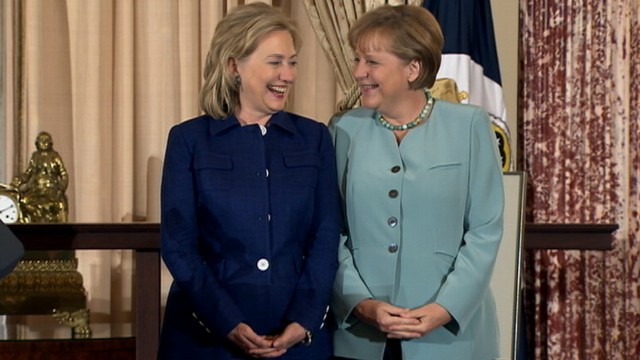
The cast of candidates for the U.S. presidency is basically set. The Republican field is packed like a can of sardines: As of today, there are 12 candidates for the primaries. Most of those projects will end up becoming mere footnotes (neither Carly Fiorina nor Ben Carson will take the White House).
The Republican nomination has five serious contenders. Among them, the most interesting ones are perhaps Marco Rubio, Scott Walker and Jeb Bush. After having declared war on workers’ unions in Wisconsin (the state in which he is governor), Walker will probably have considerable support from the conservative base. Meanwhile, Rubio is betting on being able to represent a generational shift against Jeb Bush and, if he wins the primary, against Hillary Clinton as well.
Curiously, Jeb Bush — who leads various polls and has set up a fearful fundraising machine — has yet to define his identity as a candidate. It’s hard to figure out what Bush stands for. His problems begin at home: He hasn’t yet given a satisfactory explanation about how he relates to his father’s legacy and, crucially, to his brother’s. As long as he doesn’t do this, his candidacy will be at risk.
The fact is that Bush’s ambiguity goes against the first rule that any politician who aspires to a popularly elected office must follow: the importance of defining, with the utmost clarity, what role he/she will play in the eyes of voters. Similar to how one writes the character in a novel, the candidate must forge an attractive narrative. This branding challenge is crucial for Jeb Bush, but perhaps even more so for his potential rival in next year’s presidential election.
After almost 40 years of being in public view, Hillary Clinton is now in the process of redefining her identity as a candidate. She doesn’t lack experience. The traumatic episode of the 2008 election must have taught her invaluable lessons. Let’s remember, that year Clinton was the absolute favorite to become the Democratic candidate. To solidify her chances at the election, Hillary opted to present herself almost as a man in a dress. This comparison is neither offensive nor politically incorrect; it’s a fact. The Clintons’ main strategist, the pollster Mark Penn, advised Hillary to avoid projecting any vulnerability. In “Game Change,” his extraordinary account of the 2008 election, John Heilemann explains it thus: “[Mark Penn] contended that the biggest hurdle Hillary would have to surmount if she ran for president was the doubt that a woman was capable of being commander-in-chief. At all times she had to project strength, resolution.” Everyone knows the outcome. Hillary was never able to connect with Democratic voters and ended up losing the candidacy to a man who was able to inspire even a rock. Barack Obama highlighted Clinton’s 2008 failure during one of the debates: After the moderator asked Hillary about her inability to seem like a nice person, he said, “You’re likable enough, Hillary.”
The story in 2015 is quite different. This time, Clinton doesn’t seem to feel at all obligated to convey that type of artificial strength. She is betting on the fact that her years as secretary of state have earned her respect in the eyes of voters. Freed from the necessity to sell a manufactured image, Clinton wants to bet on biographic authenticity. For example, unlike other times, she has felt the wish to speak about her mother, Dorothy Rodham, who had a difficult and admirable life. She also revels in her new role as a grandmother and even jokes about the age difference that her rivals already seek to exploit: “I may not be the youngest candidate in this race. But I will be the youngest woman president in the history of the United States! … And one additional advantage: You won’t see my hair turn white in the White House. I’ve been coloring it for years!”
Without stretching the comparison too much, Clinton’s campaign reminds us of the role that Angela Merkel played for years in contemporary German history. After all, Merkel is the most powerful woman in the world, respected and feared by both allies and enemies; and yet, Germans affectionately call her Mutti: “Mom.” A German commentator was quoted by CNN as saying: “Your mummy is always there for you … Sometimes she might tell you to clean up your room but she’s always there for you.” The German Mutti is about to celebrate a decade in power. Years ago, Hillary Clinton would surely have begrudged the mere idea of presenting herself as a grandma seeking the presidency. Today, it’s a fundamental component of her rhetoric. We’ll see if this is enough.

Leave a Reply
You must be logged in to post a comment.